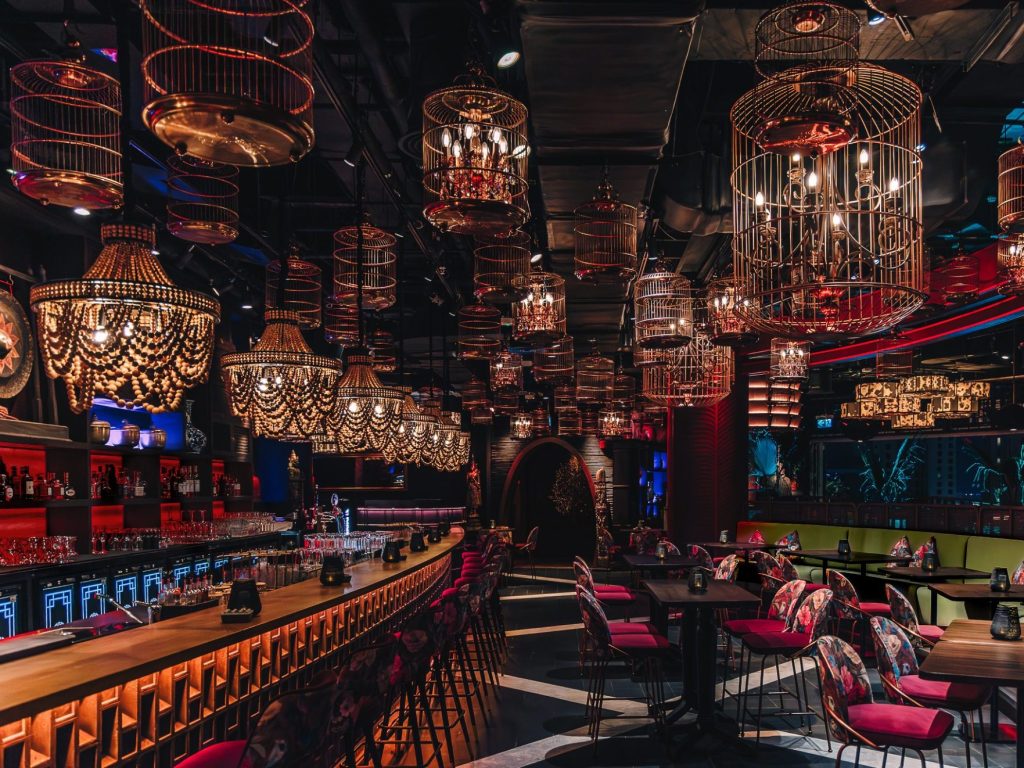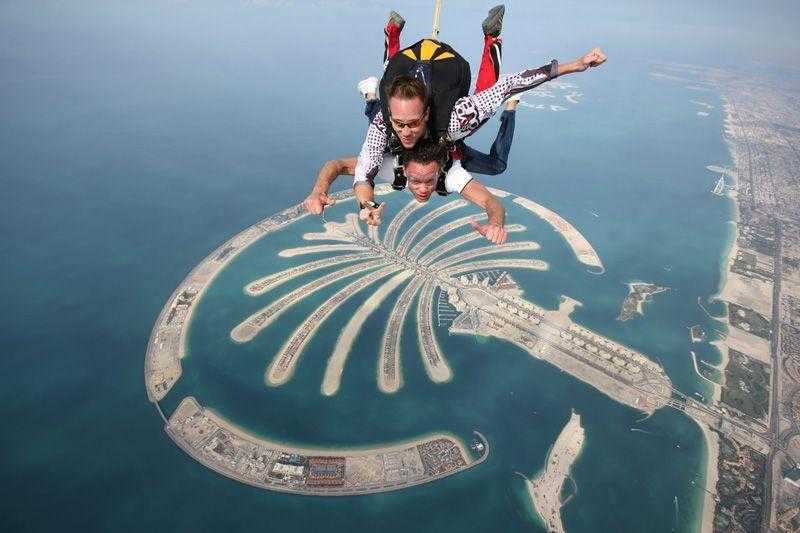Living Cost in UAE Dubai: Essential Expense Guide
Dubai, known for its stunning architecture, luxurious lifestyle, and vibrant culture, is a popular destination for expatriates from around the world. However, one common question that arises is about the cost of living in this colorful city. If you’re considering moving to Dubai or simply curious about what it costs to live there, this guide will break down the essential living expenses you need to consider.
Housing is often the most significant expense when living in Dubai. The cost can vary widely depending on the location, type, and size of the accommodation. Here’s a closer look:
Renting an Apartment
Renting an apartment in Dubai can be a complex decision, influenced by location and personal preferences. In the city center, a one-bedroom apartment is not just about the rent. Consider additional costs like parking fees, security deposits, and maintenance charges. Many expatriates opt for accommodations in areas like Downtown Dubai or Dubai Marina due to their proximity to work and entertainment venues, but this convenience comes at a premium.
Outside the city center, more affordable options are available, such as in areas like Dubai Silicon Oasis or Jumeirah Village Circle. These locations offer a quieter lifestyle and more space for less money, although they might require a longer commute. It’s also worth considering the services offered by various apartment complexes, as some include pools, gyms, and other facilities that can enhance your living experience.
Buying a Property
For those considering a long-term stay, purchasing a property might be an option. The price per square meter in the city center is approximately 10,000 to 15,000 AED, while outside the center, it can be around 7,000 to 10,000 AED. However, buying property involves more than just the purchase price. Consider additional costs such as agent fees, maintenance, and property taxes.
Financing options are available for expatriates, but they often require a substantial down payment and carry higher interest rates than those offered to citizens. Additionally, the real estate market in Dubai is dynamic, with prices fluctuating based on economic conditions and regional developments. Therefore, it’s crucial to conduct thorough research or consult a real estate expert before making a purchase.
Community Living and Hidden Costs
Living in a community or gated neighborhood offers added security and a sense of belonging but comes with community fees. These fees contribute to the maintenance of shared spaces and facilities, such as parks, pools, and gyms. When budgeting for housing, these additional expenses can significantly impact your overall living costs.
Some communities also organize events and activities, fostering a sense of community among residents. These activities can enhance your living experience but may come at an additional cost. Weighing these factors is essential to understanding the full scope of housing expenses in Dubai.
Utilities and Internet

Utilities in Dubai, including electricity, water, and gas, typically cost around 600 to 1,200 AED per month, depending on your usage and the size of your apartment. Internet services are relatively affordable, with monthly fees ranging from 300 to 500 AED for high-speed connections.
Electricity, Water, and Gas
The cost of utilities is influenced by several factors, including the size of your home and the season. Summers in Dubai can be extremely hot, leading to higher electricity bills due to air conditioning. Some apartments also include cooling charges as part of their utility bills, which can be an additional expense to consider.
Water and gas costs are generally stable, but your consumption habits will determine the exact amount. For instance, frequent laundry or dishwashing can increase water usage. Some newer buildings in Dubai offer energy-efficient appliances and systems that can help reduce these costs, so it might be worth looking into these options when choosing a place to live.
Internet and Cable Services
Internet in Dubai is not only about speed but also about reliability and service quality. Major providers like Etisalat and du offer various packages that include cable TV and landline services. When selecting an internet plan, consider your usage needs, whether it’s streaming, gaming, or basic browsing, as these will determine the best package for you.
Additionally, some apartment complexes offer bulk deals for internet and cable, which can be more cost-effective than individual plans. It’s also worth noting that Dubai has restrictions on certain internet content, so using a VPN might be necessary for accessing some international sites and services.
Hidden Charges and Connection Fees
When setting up utilities and internet, there are often hidden charges such as connection fees and deposits. These initial setup costs can add up quickly, so it’s important to factor them into your budget. Additionally, some service providers may require a minimum contract term, with penalties for early termination.
Understanding the full scope of these charges can help you better plan your move and avoid unexpected expenses. Always read the fine print and ask service providers for a detailed breakdown of all costs involved in setting up your utilities and internet.
Transportation Costs
Dubai offers a range of transportation options, from public transport to personal vehicles. Here’s what you need to know:
Public Transportation
Dubai’s public transportation system is extensive and includes buses, metro, and trams. A monthly public transportation pass costs around 300 AED, making it a cost-effective option for daily commuting. The metro is particularly popular for its punctuality and extensive network, covering key areas of the city.
In addition to the metro, buses and trams connect various parts of Dubai, offering a comprehensive public transport solution. For those who prefer cycling, the city is increasingly becoming bike-friendly with dedicated lanes and rental services. Public transportation is not only economical but also environmentally friendly, and the Dubai government is continuously investing in expanding and improving these services.
Owning a Car
Many residents prefer owning a car for convenience. Keep in mind the following expenses:
- Car purchase: The cost varies widely, but for a new mid-range car, expect to pay around 70,000 to 100,000 AED.
- Fuel: Gasoline prices are relatively low, with a liter costing about 2.5 AED.
- Insurance and maintenance: Annual car insurance can range from 1,500 to 3,000 AED, while maintenance costs will depend on the car model.
However, owning a car also involves additional costs such as registration fees, parking charges, and tolls. Salik, Dubai’s electronic toll collection system, is used on major highways and can increase your commuting expenses if you frequently drive across the city. Additionally, the cost of parking in busy areas or commercial centers can add up, so it’s essential to factor these expenses into your budget.
Car Leasing and Ride-Sharing
For those not ready to commit to buying a car, leasing is a viable option. Leasing provides the flexibility of a car without the long-term commitment, and the monthly fees often include insurance and maintenance, making it a hassle-free alternative.
Ride-sharing services like Uber and Careem are also popular in Dubai. These services offer convenience for those who prefer not to drive or deal with parking issues. While not as cost-effective as public transport, they provide flexibility and comfort, especially for short trips or outings.
Groceries and Dining
The cost of groceries and dining out in Dubai can vary based on your lifestyle and preferences.
Grocery Shopping
For a family of four, expect to spend around 3,000 to 5,000 AED per month on groceries. Major supermarkets like Carrefour and Spinneys offer a wide range of products to cater to diverse tastes. Many expatriates find familiar brands and products, although they might be priced higher than in their home countries due to import taxes.
Shopping at local markets and smaller grocery stores can offer savings, especially for fresh produce and local products. It’s also worth exploring online grocery delivery services, which are becoming increasingly popular for their convenience and competitive pricing. Planning meals and buying in bulk can also help manage grocery expenses effectively.
Dining Out
Dubai is known for its diverse culinary scene. Dining out can range from budget-friendly options to luxurious experiences:
- Casual dining: A meal at a mid-range restaurant might cost around 100 to 200 AED for two people.
- Fine dining: A three-course meal for two at a high-end restaurant can range from 500 to 1,000 AED or more.
Street food and food courts in malls offer affordable and tasty options, allowing you to experience Dubai’s culinary diversity without breaking the bank. Many restaurants also offer deals and discounts, especially during weekdays or off-peak hours, so taking advantage of these can help reduce dining costs.
Home Cooking vs. Dining Out
Balancing between home cooking and dining out can significantly influence your food budget. While cooking at home is generally more economical, Dubai’s vibrant food scene is tempting. Many residents opt for a mix of both, enjoying home-cooked meals during the week and dining out on weekends.
Meal prep services and food subscription boxes are also gaining popularity, offering convenience and variety for those with busy lifestyles. These services provide pre-portioned ingredients and recipes, making it easy to cook at home without the hassle of grocery shopping.
Education and Schooling

For families moving to Dubai, education is a critical consideration. The city boasts a range of international schools offering various curriculums.
School Fees
- Preschool: Fees range from 20,000 to 50,000 AED per year.
- Primary and secondary schools: Tuition can range from 30,000 to 100,000 AED per year, depending on the school and curriculum.
International schools in Dubai offer a variety of curriculums, including British, American, Indian, and International Baccalaureate, catering to the diverse expatriate community. It’s important to visit schools and understand their offerings, facilities, and extracurricular activities before making a decision.
Additional Educational Costs
In addition to tuition, other costs include uniforms, books, and extracurricular activities. Many schools offer a range of activities such as sports, music, and art, which can enrich your child’s educational experience but come with additional fees.
Transportation to and from school is another consideration, with many schools offering bus services for an extra charge. Balancing these costs with your budget is crucial, as education is a significant investment in your child’s future.
Choosing the Right School
Selecting the right school involves considering factors such as proximity, curriculum, and school culture. It’s beneficial to engage with other parents and seek reviews to gain insights into the school’s reputation and environment. Open days and school visits can also provide a better understanding of the facilities and teaching approach.
Understanding the application process and deadlines is essential, as popular schools often have waiting lists. Early planning and research will help ensure that your child has a smooth transition and a fulfilling educational experience in Dubai.
Healthcare Expenses
Healthcare in Dubai is of high quality, but it comes at a cost. Many employers provide health insurance, but it’s essential to understand potential out-of-pocket expenses.
Health Insurance
Basic health insurance might be covered by your employer, but for comprehensive coverage, you may need to pay extra. Expect to spend around 5,000 to 10,000 AED per year for a standard family plan.
Insurance plans vary widely in terms of coverage, so it’s important to review what is included, such as dental and vision care, maternity benefits, and specialist consultations. Understanding the network of hospitals and clinics covered by your insurance can also impact your healthcare choices and costs.
Out-of-Pocket Healthcare Costs
While insurance covers many medical expenses, out-of-pocket costs can arise for treatments not included in your plan. These might include alternative therapies, elective procedures, or consultations with non-network specialists.
Pharmacy costs for prescription and over-the-counter medications are another consideration, as not all medications are covered by insurance. It’s advisable to set aside a budget for unexpected medical expenses to avoid financial strain.
Access to Healthcare Services
Dubai offers a range of healthcare facilities, from government hospitals to private clinics, ensuring access to quality medical care. The city also attracts internationally trained medical professionals, providing residents with a high standard of healthcare services.
For expatriates, understanding how to access these services is crucial. Many clinics and hospitals offer online booking and telemedicine services, adding convenience to the healthcare experience. Knowing where to go for different medical needs can save time and reduce stress during medical emergencies.
Entertainment and Leisure
Dubai offers a wealth of entertainment options, from shopping malls to outdoor activities.
Leisure Activities
- Gym membership: Monthly fees range from 200 to 500 AED.
- Cinema tickets: A single ticket costs about 35 to 50 AED.
Beyond the basics, Dubai’s leisure scene includes activities like desert safaris, water sports, and cultural events. Many gyms and fitness centers offer classes such as yoga, pilates, and martial arts, providing diverse options for staying active.
Outdoor enthusiasts can enjoy parks, beaches, and hiking trails, with many free or low-cost options available. Exploring local events, art galleries, and festivals can also add richness to your social life without significant expense.
Tourist Attractions
While living in Dubai, you might want to explore the city’s famous attractions. Entry fees for popular sites like Burj Khalifa or theme parks can range from 100 to 300 AED per person. Resident discounts and annual passes can offer savings for frequent visitors.
Dubai’s cultural and historical sites, such as the Dubai Museum and the Al Fahidi Historical Neighborhood, provide insights into the city’s heritage and are often more budget-friendly. Engaging with local cultural experiences can enhance your understanding and enjoyment of life in Dubai.
Balancing Entertainment with Budget
Balancing leisure activities with your budget is essential to enjoying Dubai without overspending. Many residents take advantage of free community events and explore natural attractions, offering affordable ways to unwind.
Planning and setting a monthly entertainment budget can help manage expenses and ensure you make the most of Dubai’s vibrant lifestyle. Embracing a mix of paid and free activities allows you to enjoy the city’s offerings while maintaining financial stability.
Conclusion
Living in Dubai offers a unique blend of modernity and tradition, but it’s essential to be prepared for the associated costs. Housing, utilities, transportation, and other expenses can add up quickly, so budgeting is crucial.
By understanding these costs, you can make informed decisions and enjoy all that Dubai has to offer without financial stress. Whether you’re an expatriate planning a move or simply exploring, this guide serves as a comprehensive overview of Dubai’s living expenses. Through careful planning and resource management, you can fully experience the dynamic and diverse lifestyle that Dubai provides.






